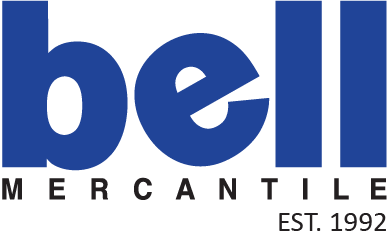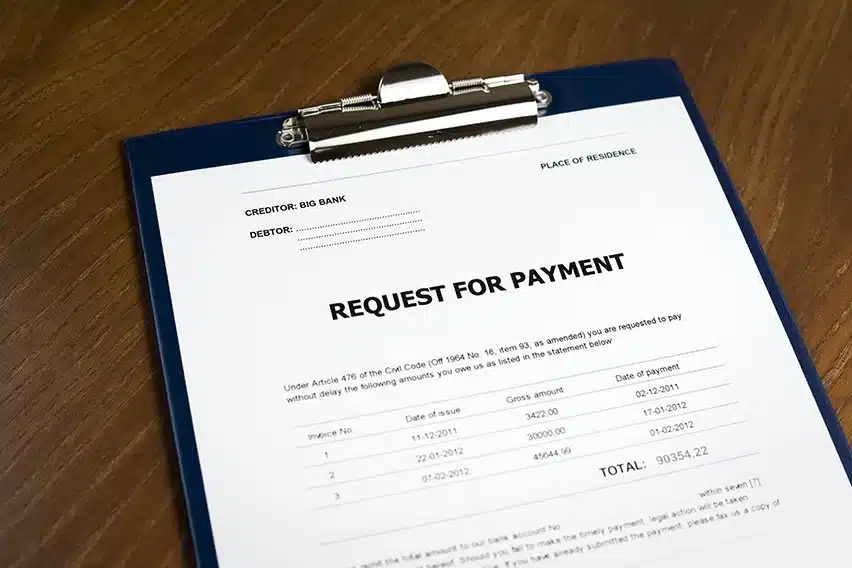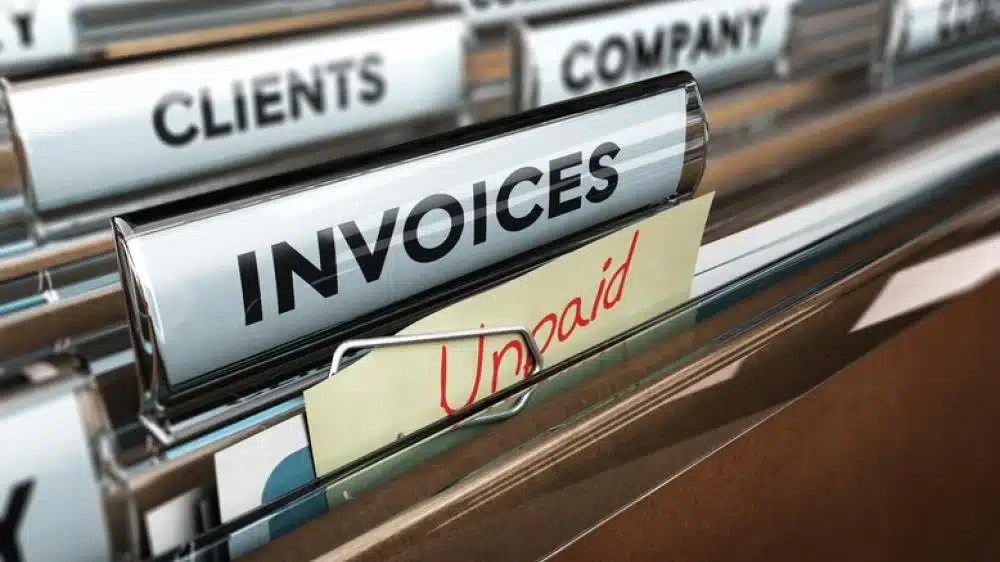A Corporate Debt Collection Guide to Recovering Unpaid Business Invoices
When it comes to the business of commercial debt collection, then understanding the intricacies of recovering unpaid business invoices is an important step for maintaining your financial corporate health. In Australia, the significance of effective commercial debt collection cannot be overstated, as a staggering percentage of businesses face challenges with late payments. According to recent statistics a Creditor Watch survey revealed that 82% of Australian businesses experienced late or overdue payments in the six months leading up to December 2023, with 37% of businesses commonly dealing with invoices paid more than 30 days late. This is particularly problematic in industries like construction, where late payments often extend beyond 45 days. This reality highlights the pressing need for companies to get a good handle on their business debt recovery processes governing their cash flow operations.
Recovering debts from other businesses presents unique challenges that require a strategic approach. Companies often encounter issues such as jurisdictional complexities, differing payment terms, and the economic conditions affecting their clients’ ability to pay. These factors can complicate the recovery process, making it essential for business owners to be well-versed in their rights and the legal framework surrounding B2B debt collection in Australia. Understanding these processes not only aids in effective debt recovery but also helps companies maintain positive relationships with their clients.
The importance of a structured approach to commercial debt recovery cannot be understated; by implementing effective strategies and adhering to best practices, accounts departments can enhance their chances of recovering outstanding debts while minimising disruptions to their operations. This article will delve into the key topics surrounding B2B debt collection, including the recovery process, common challenges faced by companies, and actionable strategies that can lead to successful outcomes.
Understanding B2B Debt Collection
Business to Business debt collection is a critical aspect of maintaining financial stability for businesses in Australia. Unlike consumer debt collection, which often involves individuals, B2B debt collection focuses on transactions between businesses. This distinction is crucial because the dynamics of commercial relationships can complicate the recovery process. Businesses frequently encounter various types of debts, including unpaid invoices, late payments and outright refusal to pay for work completed, which can significantly hinder cash flow and operational efficiency.
In Australia, the legal framework governing B2B debt collection is designed to protect both creditors and debtors. Understanding these laws and regulations is essential for businesses looking to navigate the complexities of corporate debt management effectively. For instance, the Australian Consumer Law outlines specific rights and obligations that must be adhered to during the collection process. Familiarity with these legal parameters not only helps businesses enforce their rights but also ensures compliance with debt collection regulations, thereby minimising the risk of disputes.
The prevalence of unpaid invoices in the Australian business landscape underscores the importance of effective B2B debt collection strategies. Statistics reveal that a significant percentage of invoices are paid late, which can lead to cash flow issues and financial strain for many companies. By recognizing the common challenges faced in business transactions and implementing robust debt recovery processes, organisations can enhance their chances of successfully collecting outstanding debts.
How The Commercial Debt Recovery Process Works
Recovering commercial debts is a systematic process that requires careful planning and execution. The journey typically begins with initial communication with the debtor, where the goal is to establish a dialogue and understand the reasons behind the unpaid invoices. This step is crucial, as it sets the tone for future interactions and can often lead to a quick resolution if handled effectively. A friendly yet firm approach can encourage debtors to engage and discuss their situation openly.
Once communication is established, the next phase involves sending payment reminders and overdue notices. These reminders serve as gentle nudges, prompting debtors to address their outstanding obligations. It’s important to document each step of this process meticulously, as having a clear record of all communications can be invaluable should the situation escalate to legal proceedings for debt recovery. Documenting contracts and invoices, plays a pivotal role in substantiating claims and ensuring that both parties are on the same page regarding what is owed.
If initial reminders do not yield results, negotiating flexible payment terms or arrangements becomes essential. This may involve discussing flexible payment options that accommodate the debtor’s financial situation while still ensuring that your business receives the owed amount. By being open to negotiation, you demonstrate a willingness to work with the debtor, which can foster goodwill and increase the likelihood of recovering the debt. Should these efforts fail, it may be necessary to escalate to formal corporate debt collection services. B2B debt collection firms bring valuable experience and resources to the table, allowing businesses to pilot complex legal landscapes while focusing on their core day to day business operations.
Challenges in Business to Business Debt Collection
When it comes to B2B debt collection, businesses often face a unique set of challenges that can complicate the recovery of outstanding debts. One of the most significant hurdles is jurisdictional issues. Since businesses operate across various regions and states, differing laws and regulations can create confusion regarding the enforcement of commercial debt recovery practices. This complexity can make it difficult for companies to navigate the legal landscape effectively, leading to delays in recovering what is owed.
Another challenge lies in the differing payment terms and expectations that exist between businesses. Each company may have its own policies regarding payment timelines, which can lead to misunderstandings and disputes over what constitutes a late payment. For instance, one business might expect payment within 30 days, while another operates on a 60-day cycle. These discrepancies can create friction in the relationship and hinder effective communication about overdue invoices. Another issue can be dealing with a business filing for bankruptcies which presents a significant challenge for companies engaged in debt collection, as it often complicates the recovery process and may limit the options available for recouping outstanding debts.
Economic conditions also play a crucial role in B2B debt collection. When economic downturns occur, clients may struggle to meet their financial obligations, impacting their ability to pay outstanding debts. This situation can lead to increased late payments and a higher volume of unpaid invoices, putting additional strain on businesses trying to maintain their cash flow.
To overcome these challenges effectively, businesses should adopt proactive strategies that enhance their business debt recovery processes. Establishing clear communication channels with clients from the outset can help set expectations regarding payment terms and reduce misunderstandings.
Effective Strategies for Commercial Debt Collection
One of the first steps in enhancing commercial debt recovery efforts is to develop clear credit policies and payment terms upfront. By establishing these guidelines early in the business relationship, companies can set expectations that help prevent misunderstandings later. Clear payment terms not only facilitate smoother transactions but also provide a solid foundation for addressing any payment issues that may arise.
Implementing automated reminders and follow-up systems can significantly improve recovery rates. These tools help keep outstanding debts at the forefront of both parties’ minds, reducing the chances of invoices being overlooked or forgotten. Regular reminders serve as gentle nudges, prompting clients to fulfil their obligations without damaging the relationship. Coupled with persuasive communication techniques, these reminders can be crafted to encourage prompt payments while maintaining a professional tone.
Flexibility is another key strategy in commercial debt collection. Offering flexible payment options or arrangements can make it easier for clients facing financial difficulties to settle their debts. This approach not only fosters goodwill but also increases the likelihood of recovering outstanding amounts. By demonstrating understanding and willingness to work with clients, businesses can often turn a potentially contentious situation into a collaborative effort. Remember throughout the recovery process, maintaining professionalism is paramount. The way a business handles debt collection can have lasting effects on its reputation and client relationships. A respectful and empathetic approach can go a long way in preserving these connections, even when discussing sensitive topics like unpaid invoices. At Bell Mercantile, we believe that successful debt collection hinges on effective communication and relationship management.
The Role of Professional Commercial Debt Recovery Agencies
Engaging a business debt recovery agency can be a game changer for businesses trying to navigate the strange world of B2B debt collection. These agencies bring a wealth of expertise and resources to the table, allowing companies to recover debts more efficiently and effectively. By leveraging their specialised knowledge, businesses can focus on their core operations while leaving the headaches of debt recovery in capable hands. Professional debt collection agencies understand the subtleties of corporate credit control and are equipped to handle various aspects of the recovery process, from initial contact to legal action if necessary.
One of the key services offered by these agencies is skip tracing, which involves locating debtors who may have changed addresses or become difficult to contact. This service is invaluable in today’s hectic and often mobile business environment, where clients may relocate or alter their contact details without notice. Additionally, many agencies provide legal support, enabling businesses to pursue formal action when informal collection efforts do not yield results. This combination of services ensures that businesses have a comprehensive approach to debt recovery.
Best Practices for Commercial Business Debt Recovery
To maximise the effectiveness of B2B debt collection efforts, businesses should adopt several best practices including some of the following:
- Regularly reviewing accounts receivable processes is essential for identifying potential issues before they escalate into larger problems. By keeping a close eye on outstanding debts, companies can take proactive steps to address them.
- Training staff on effective communication and negotiation techniques is another critical component of successful debt recovery. Employees who are well-versed in these skills can handle sensitive conversations with confidence and professionalism, fostering better relationships with clients even during challenging discussions about payments.
- Monitoring industry trends that may affect payment conduct is also vital. Economic shifts can impact clients’ ability to pay, so staying informed allows businesses to adapt their strategies accordingly.
- Establishing a clear escalation process for overdue accounts ensures that no debt slips through the cracks and that appropriate actions are taken in a timely manner.
Here at Bell Mercantile, our Melbourne based debt collection company is committed to helping businesses implement these best practices while providing professional assistance throughout the commercial debt recovery process. With our expertise in business debt management and corporate debt recovery solutions and our dedication to maintaining positive client relationships, we empower businesses to navigate the complexities of B2B debt collection successfully. By working together, we can enhance your financial health and ensure that your business thrives in today’s competitive market. Feel free to contact us today for more information or simply give us a call on +61 3 9596 9311
FAQ
How can I improve my commercial debt collection process?
To enhance your B2B debt collection process, start by developing clear credit policies and payment terms upfront. Implement automated reminders and follow-up systems to keep communication consistent. Training your staff on effective communication and negotiation techniques can also significantly improve recovery rates. Additionally, maintaining professionalism and positive relationships with clients throughout the process is crucial for successful collections.
What is the average time to collect a B2B debt in Australia?
The average time to collect a B2B debt in Australia can vary widely depending on several factors, including the industry, the debtor’s financial situation, and the effectiveness of your collection strategies. Generally, it may take anywhere from 30 to 90 days to recover debts, but this timeline can extend if disputes arise or if legal action is needed.
How can I prevent late payments from Business clients?
Preventing late payments involves setting clear expectations from the start. Establish detailed payment terms in your contracts and communicate them effectively to your clients. Regularly monitor accounts receivable and send reminders before payment due dates. Building strong relationships with clients can also encourage timely payments.
What are the common reasons for B2B debt collection failures?
Common reasons for failures in B2B debt collection include unclear payment terms, lack of communication, insufficient follow-up, and failure to establish a solid relationship with clients. Additionally, economic downturns or changes in a client’s financial situation can impact their ability to pay
How can I calculate my accounts receivable turnover ratio?
To calculate your accounts receivable turnover ratio, divide your net credit sales by your average accounts receivable during a specific period. The formula is:
Accounts Receivable Turnover Ratio = Net Credit Sales / Average Accounts Receivable.
This ratio helps you assess how efficiently your business collects receivables.
What is the best way to write a follow-up letter for an unpaid invoice?
When writing a follow-up letter for an unpaid invoice, start with a polite greeting and clearly state the purpose of your message. Include specific details such as the invoice number, amount due, and due date. Express understanding of potential issues while firmly requesting payment. Finally, provide clear instructions on how to make the payment and offer assistance if needed.
How can I avoid disputes in corporate transactions?
To avoid disputes in B2B transactions, ensure that all agreements are documented clearly and comprehensively. Establish open lines of communication with clients and address any concerns promptly. Regularly review contracts and terms of service to avoid misunderstandings.
What are the ethical considerations in commercial debt collection?
Ethical considerations in B2B debt collection include treating all clients fairly and respectfully, adhering to relevant laws and regulations, and avoiding aggressive or misleading tactics. It’s important to maintain professionalism throughout the collection process while being transparent about fees and potential consequences of non-payment.
What are the Australian laws governing business to business debt collection?
In Australia, B2B debt collection is governed by various laws including the Australian Consumer Law (ACL) which provides protections against unfair practices. Additionally, state-specific regulations may apply depending on the jurisdiction where the business operates.
How does the Australian Consumer Law apply to commercial transactions?
The Australian Consumer Law applies to B2B transactions when goods or services are supplied in trade or commerce. It provides protections against misleading conduct and guarantees certain rights regarding quality and fitness for purpose.
What are the penalties for non-compliance with Australian debt collection laws?
Penalties for non-compliance with Australian debt collection laws can include fines imposed by regulatory bodies such as the Australian Competition and Consumer Commission (ACCC). In severe cases, businesses may also face legal action from affected parties.
How can I file a complaint against a business that is not paying its debts?
To file a complaint against a business that is not paying its debts, you can contact relevant consumer protection agencies or industry ombudsmen in your state. Document all communications related to the debt and provide evidence when filing your complaint.
What are the best practices for corporate debt collection in Australia?
Best practices for commercial debt collection include establishing clear credit policies, maintaining regular communication with clients, utilising automated reminders, training staff on negotiation techniques, and documenting all interactions related to debt recovery.
How can I protect my business from fraudulent business transactions?
To protect your business from fraudulent B2B transactions, conduct thorough background checks on potential clients before entering into agreements. Implement secure payment methods and monitor transactions closely for any suspicious activity.
What are the common mistakes made by businesses in B2B debt collection?
Businesses often make several key mistakes in B2B debt collection, including failing to establish clear credit policies and payment terms from the start, which can lead to misunderstandings. Inconsistent follow-up on overdue invoices is another frequent issue, as sporadic reminders may result in payments being overlooked. Additionally, some companies do not personalise their communication, sending generic messages that lack impact. Lastly, hesitating to escalate collection efforts when necessary, can prolong the recovery process and negatively affect cash flow.
How can I improve my company’s cash flow through effective debt collection?
Improving cash flow through effective debt collection involves implementing systematic follow-up processes for overdue invoices, offering flexible payment options to clients facing difficulties, regularly reviewing accounts receivable practices, and engaging professional debt recovery services when necessary. By prioritising these strategies, businesses can enhance their cash flow management significantly.





